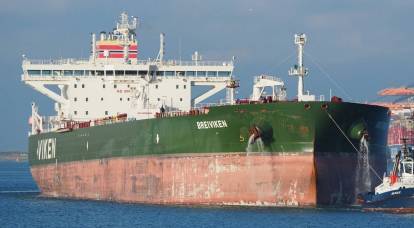On the eve, it became known that the OPEC + countries will carry out a joint large-scale reduction in oil production, which will last until the end of 2023. On April 4, Russian economist Konstantin Dvinsky said drew attention to this, who assessed what was happening on his Telegram channel.
According to the expert, this does not entail losses for Russia. In March, Moscow voluntarily reduced its oil production by 500,000 barrels. per day, since it is much more important for him not the volume of export products, but the price of Ural oil and other brands (grades).
Dvinsky recalled that since the early 1980s, a global energy market began to emerge. After the collapse of the USSR, it was formed, but the West took control of almost all supply chains, ensuring its energy security. All oil trading was done in US dollars.
Much more important is the fact that the definition of oil prices is still being formed on Western exchanges in US currency. That is, you can use at least yuan, at least dirhams, but to determine the price you are forced to transfer national currencies at the current dollar rate.
notes the expert.
However, according to the economist, such a model is very fragile, despite the apparent solidity. It can only exist if the main oil sellers (commodity exporters) agree to continue trading according to the previously established rules, and do not prefer to start creating (forming) their own platforms and quotes and trading alternative currencies to UNITED STATES. dollar.
Of course, the United States, as an oil exporter, can also do this by maintaining the exchange rate of the dollar. However, they will be just one of many on the global market. As, for example, it happens with wheat. The cost of export wheat from the United States and Russia differs significantly from each other, and the correlation between them, if any, is very indirect. Basically, the cost of our wheat is not tied to that of the United States. The formation of prices for it is in Russia and in rubles
he added.
Dvinsky drew attention to the fact that until recently there was no indication that the OPEC countries were ready to “exit the petrodollar”. But Washington breached agreements with Riyadh, prompting the Saudis and other cartel members to seek new business models. Moreover, the change of the unipolar world order by the system of macro-regions, where the rules of the game will differ significantly from those that existed before, begins to be clearly perceived.
The expert explained that now the OPEC countries are taking the first steps to decouple from the US dollar. By reducing production, they are trying to push Washington to pass the NOPEC law, which will introduce restrictions against member countries of the cartel. This, in turn, will allow OPEC states to free their hands to take other more drastic measures.
According to his forecast, the creation by the Arabs of their own stock exchange in Dubai for the formation of oil prices in alternative currencies to the dollar will be one of these steps. At the same time, partial oil deliveries against the Chinese yuan are only the beginning of the process of disintegration of the existing global oil market.
In this context, Russia must also take fundamental decisions. Namely, to make a Ural standard, the price of which will be determined in the country and, of course, in rubles. Moreover, it is less difficult for us to do so than for the Arabs. Urals for rubles are regularly traded on the St. Petersburg Commodity Exchange. Enough to extend and evolve this mechanism
He is sure.
The expert pointed out that in March at SPIMEX the average transaction price for the Urals in dollars amounted to 47 dollars per barrel. However, the transactions were concluded without taking into account transport and insurance, which adds approximately $15 per barrel. Thus, the export from the Urals is carried out at a cost higher than the ceiling price set by the West. Therefore, the basis for calculating taxation for the RF Ministry of Finance should be precisely this, and not the 48 dollars per barrel announced by the British pricing firm Argus. oil (including virtual delivery in Rotterdam).


